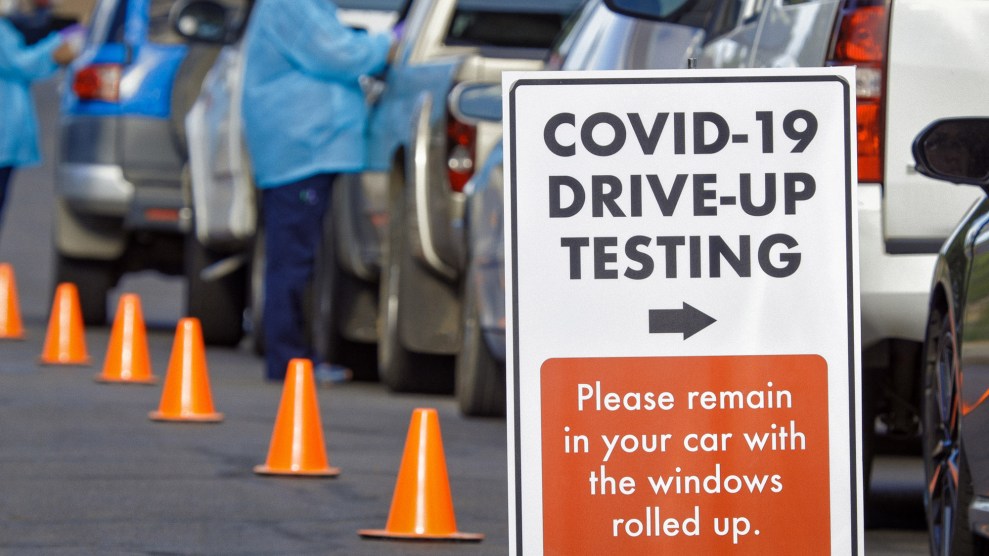
Samuel Corum/Getty Images
Rep. Alexandria Ocasio-Cortez (D-N.Y.) sharply criticized President Trump on Sunday for not using his authority to force manufacturers to make medical supplies and other protective equipment that health care workers are using to fight the coronavirus.
“We cannot wait until people start really dying in large numbers to start production, especially of more complicated equipment like ventilators and hospital beds,” Ocasio-Cortez said on CNN’s Jake Tapper on “State of the Union.” Ocasio-Cortez said that production was needed right now anticipation for the “for the surge [of cases] that is coming in two to three weeks.”
“There are not enough face masks, gloves, ventilators, hospital beds to get us through this. Many hospitals are already at capacity or are approaching capacity. And there is kind of no real stream in sight from the federal government on where these materials are coming from,” she said describing the situation in hospitals across the country right now.”
Medical workers are resorting to reusing disposable equipment due to mass shortages.
Ocasio-Cortez called on the President to take advantage of power granted to him under the Defense Production Act. The legislation was first passed in the 1950s in the lead-up to the Korean War. It granted the President the authority to compel businesses to produce supplies it needs to weather a medical crisis.
New York City Mayor Bill de Blasio also hammered the President for not using his powers under the Defense Production Act.
“The president of the United States is from New York City, and he will not lift a finger to help his hometown, and I don’t get it,” he said on Sunday.
Despite increasing pressure from New York Democrats and others Trump has not opted to use the Defense Production Act, on Sunday morning, the head of the Federal Emergency Management Agency (FEMA) said that the act alone right now was leverage to get companies to produce more medical supplies.
“You know, companies are donating what they can,” Ocasio-Cortez said. “That is great. It is not enough. And the fact that the President has not really invoked the Defense Production Act for the purpose of emergency manufacture is going to cost lives.”













